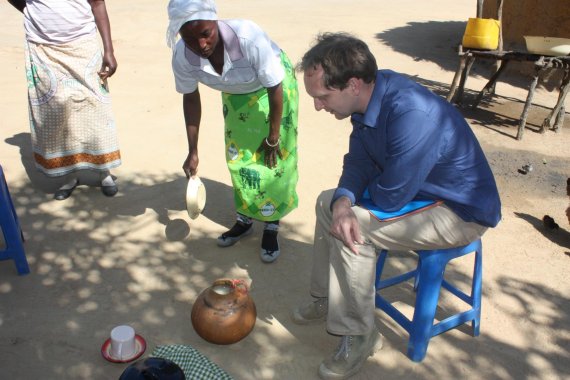Around 40 per cent of Zambian children under the age of five suffer from retarded growth. Mabisi and munkoyo could help tackle the shortage of vitamins and minerals in these children. Schoustra: ‘Unfortunately there is not one single solution, of course, but this research is a step in the right direction.’
The PhD students, who all come from Zambia, studied the nutritional value, microbiology and production of mabisi and munkoyo, fermented products that are traditionally an important component of the diet in Zambia and are often made at home. Munkoyo is boiled, fermented maize gruel while mabisi is made by fermenting milk at room temperature. ‘Like Dutch buttermilk with a hint of French cheese,’ says Schoustra.
People who drink mabisi or munkoyo have healthier gut flora
The two drinks have the distinctive feature of a relatively long shelf life even when not kept in the fridge. What is more, they are healthy. Schoustra: ‘People who regularly drink mabisi or munkoyo turn out to have healthier gut flora than people who don’t. The bacteria in the product interact with the gut bacteria, although we don’t yet know how exactly.’ Moreover, vitamin B is produced during the fermentation process, so the nutritional value of these end products is greater than that of the milk or maize at the start of the process.
The products are relatively easy to make and get hold of, in rural areas at any rate. It is more difficult to find them in cities as there are no cows there and so no fresh milk. The production and trade of raw milk products is governed by strict rules in Zambia for food safety reasons. ‘These products are sold on the streets and in markets, but they are not allowed in supermarkets,’ explains Schoustra. ‘That is why we are working with the Zambian food inspection service on a standard protocol for mabisi production. Hopefully that will mean it can be produced on a larger scale and will become easily available in cities too.’

 Researcher Sijmen Schoustra is shown how mabisi, a kind of buttermilk, is made.
Researcher Sijmen Schoustra is shown how mabisi, a kind of buttermilk, is made.


